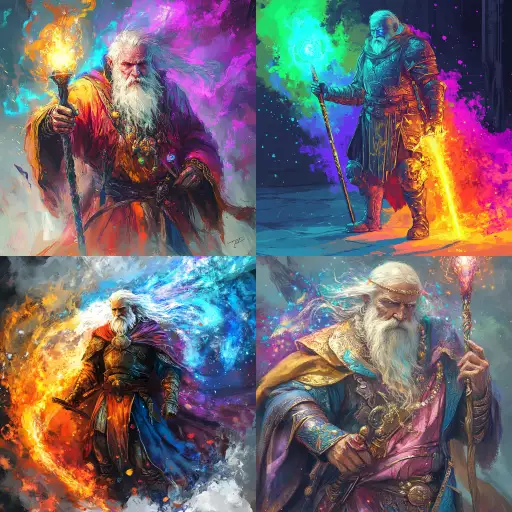Explore the Best AI Image Gallery

The Algorithmic Muse: Navigating the Ethics of AI-Generated Media
The creative landscape is undergoing a profound transformation, driven by the rapid advancements in artificial intelligence (AI). AI-powered tools are now capable of generating stunning visuals, composing captivating music, and crafting compelling narratives, blurring the lines between human and machine creativity. While this technological revolution presents exciting opportunities, it also raises complex ethical questions that demand careful consideration.
The Creative Industry in Flux
AI-generated media has already begun to make its mark on various sectors of the creative industry:
- Visual Arts: AI algorithms can generate unique artwork, from photorealistic images to abstract patterns, challenging traditional notions of authorship and artistic expression.
- Music Production: AI-powered tools can compose original melodies, harmonies, and even entire musical pieces, assisting musicians in their creative process and opening up new sonic frontiers.
- Film and Animation: AI can be used to create realistic character animations, generate special effects, and even write scripts, streamlining the filmmaking process and pushing the boundaries of storytelling.
Potential Benefits and Applications
The rise of AI-generated media offers a multitude of potential benefits:
- Enhanced Creativity: AI can serve as a powerful tool to inspire and augment human creativity, providing artists with new ideas, techniques, and perspectives.
- Increased Accessibility: AI-powered tools can democratize creative processes, making them more accessible to individuals who may not have traditional artistic training or resources.
- Efficiency and Productivity: AI can automate repetitive tasks in the creative workflow, freeing up artists and designers to focus on higher-level conceptual work.
Ethical Considerations
While the potential of AI-generated media is immense, it is crucial to address the ethical challenges it presents:
- Authorship and Ownership: Who owns the copyright to AI-generated works? Is it the creator of the algorithm, the user who inputs the prompts, or the AI itself?
- Bias and Discrimination: AI algorithms are trained on massive datasets, which can contain inherent biases that reflect societal prejudices. This can result in AI-generated content that perpetuates harmful stereotypes.
- Misinformation and Manipulation: The ability to create realistic fake news, deepfakes, and other forms of synthetic media raises serious concerns about the spread of misinformation and its potential to manipulate public opinion.
Future Trends
The field of AI-generated media is rapidly evolving. Here are some key future trends to watch:
- Increased Personalization: AI will enable the creation of highly personalized content tailored to individual preferences and needs.
- Immersive Experiences: AI-powered virtual reality (VR) and augmented reality (AR) applications will create immersive and interactive creative experiences.
- Human-AI Collaboration: The future of creativity likely lies in a collaborative relationship between humans and AI, where each leverages their unique strengths to produce innovative outcomes.
Navigating the Path Forward
As AI continues to reshape the creative landscape, it is essential to engage in thoughtful discussions about its ethical implications. By fostering transparency, promoting responsible development practices, and establishing clear guidelines for the use of AI-generated media, we can harness its transformative power while mitigating potential risks. The algorithmic muse offers exciting possibilities, but it is up to us to ensure that it serves as a force for good in the creative world.
